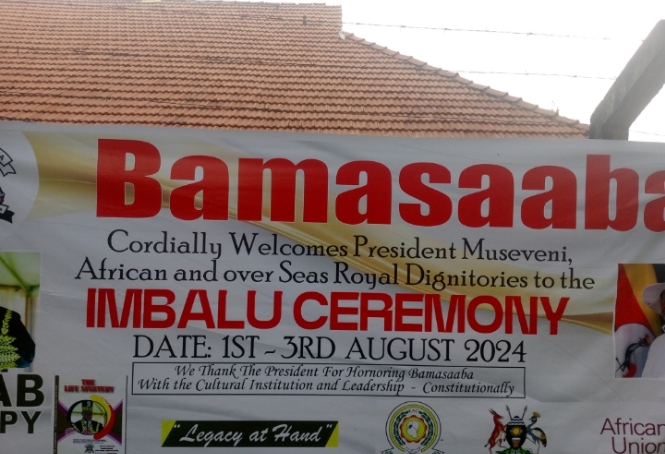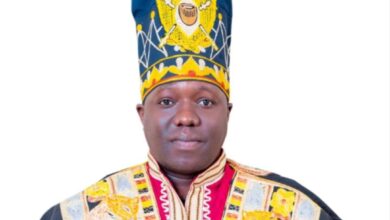UNESCO to register Imbalu as intangible cultural heritage for the Bamasaba people
By bringing Imbalu to the international stage, the Bamasaba would be able to share their cultural heritage with the world.

Mbale: The Bamasaba people are on the cusp of a significant cultural milestone as efforts to have Imbalu, their traditional male circumcision ritual, recognized by UNESCO as an Intangible Cultural Heritage gain momentum.
Imbalu, a bi-annual rite of passage practiced by the Bamasaba people in Uganda and Kenya, could soon join the list of globally recognized cultural practices under UNESCO’s protection, alongside famous traditions such as the Egyptian tombs, Turkish stonework, and Japanese flute music.
Currently, Uganda boasts six cultural elements protected by UNESCO, including the making of barkcloth among the Baganda, the Bigwala trumpet music and dance among the Basoga, and the Empaako traditional naming ceremony among the Batoro and Banyoro. If successful, Imbalu would become the seventh such element, securing its place among the world’s most treasured cultural practices.
The Bamasaba cultural leadership, led by Umukuka III His Highness Jude Mike Mudoma, is spearheading the drive to ensure the preservation of Imbalu. The cultural leadership has been working across the seven districts of Masabaland, as well as with the Bamasaba diaspora, including the Kenyan chapter, to raise awareness about the need for Imbalu to be formally protected.
There are concerns that the practice could fade or be diluted, especially with neighboring tribes such as the Bateso, Bagwere, and Basoga beginning to adopt aspects of the Imbalu tradition without fully respecting the Bamasaba’s unique customs, potentially undermining the authenticity of the practice.
Imbalu is a male circumcision ritual that marks a significant rite of passage for boys into manhood. It is performed on males aged 18 years and above and involves the traditional removal of the foreskin by circumcision surgeons, who are believed to be guided by spirits (referred to as Kumusambwa). This circumcision occurs every two years, with ceremonies held in August for non-school-going candidates and December for school-going ones.
The origins of Imbalu are rich with fascinating theories, ranging from a woman’s requirement for circumcision to accept a suitor, to an incident involving a notorious man in the community who was circumcised to curb his infidelity, to the more widely accepted theory that the practice was adopted from Cushitic tribes as the Bamasaba migrated into Uganda centuries ago.
For over 600 years, the Bamasaba have practiced this traditional circumcision, and it holds significant cultural value, including the respect and social status it grants to those who undergo it. In fact, the Bamasaba hold such reverence for the ritual that uncircumcised men are not considered fully integrated into the community, and even their children cannot call them “father” until they have undergone circumcision.
The Bamasaba cultural leadership is actively working with local communities and key stakeholders to ensure Imbalu is protected before it risks losing its cultural significance. The process of registering Imbalu with UNESCO would provide international recognition, ensuring the preservation of this unique tradition for future generations.
There are significant benefits to UNESCO recognition, including the global acknowledgment of the cultural importance of Imbalu, opportunities for cultural tourism, and funding to support the sustainability of the practice.
By bringing Imbalu to the international stage, the Bamasaba would be able to share their cultural heritage with the world, create educational opportunities, and generate income through cultural tourism and related initiatives, such as museums dedicated to the Imbalu ritual.
Moreover, international recognition by UNESCO would provide the Bamasaba people with the necessary tools and support to educate both local and global audiences about the cultural, health, and social importance of Imbalu.
The World Health Organization (WHO) has already highlighted the health benefits of circumcision, citing studies that show lower rates of HIV and sexually transmitted diseases among circumcised men, a significant point in promoting the practice internationally.
The Bamasaba cultural leadership, supported by the Uganda UNESCO office and the Ministry of Gender, is making strides in the advocacy process. Hon. Priscilla Khainza Mungoma, the Minister in charge of Museums and Tourism in the Bamasaba Cultural Institution, noted that the leadership is actively traversing the districts of Masabaland, ensuring that all Bamasaba people, both within Uganda and the Kenyan diaspora, are informed about the importance of UNESCO protection and the potential benefits of such recognition.
UNESCO’s involvement in cultural preservation has already helped many countries safeguard and celebrate their traditional practices. By securing recognition for Imbalu, the Bamasaba aim to join this esteemed group, ensuring their unique cultural practices are protected for posterity.
With UNESCO’s backing, the Bamasaba hope that Imbalu will not only survive but thrive, continuing to be a symbol of manhood, respect, and tradition that brings together generations of Bamasaba in Uganda and Kenya.
The Bamasaba’s quest to have Imbalu recognized by UNESCO is a significant step in preserving their cultural heritage and ensuring that future generations can continue to participate in this sacred and meaningful rite of passage. As the process unfolds, the global community may soon come to appreciate Imbalu not only as a vital tradition of the Bamasaba people but as an important element of the world’s cultural diversity.
Do you have an advertisement or article you want to publish? Mail us at theugreports@gmail.com or WhatsApp +256394700683.






